Jeremiah Lloyd Harmon: Exclusive interview with the gay American Idol phenom
Blessed with exceptional talent, local gay singer Jeremiah Lloyd Harmon has emerged as an American Idol frontrunner

If you don’t know the name Jeremiah Lloyd Harmon, you will soon enough.
With a soaring falsetto and powerful, emotional delivery, there is good reason why Harmon has left the judges on American Idol gasping and waxing rhapsodic after each and every performance.
“[You] just tell the story, and we’re sucked in from the first note,” Lionel Richie said after Harmon, a current Season 17 contestant, closed out “Hollywood Week” with a masterfully moving rendition of Bob Dylan’s “Make You Feel My Love.” “I am telling you, for me — and I’m probably speaking for the rest of us — that was a brilliant performance. Brilliant.”
Never one to be outdone, Katy Perry roared even more effusively. “I’m just so beyond moved to see such an incredible, serious musician up there,” Perry said. “I think you are a really important contribution from the universe to music.”
It’s not just Harmon’s exceptional musical talent and well-honed vocal skill that has so impressed the judges. That alone would not explain the rapturous responses he’s been getting from viewers moved to tears and inspired to reach out after his emotional, and obviously personal, performances — to date, none more so than his stirring cover of Fleetwood Mac’s “Landslide,” which cemented Harmon’s spot in the Top 20. It turns out, that hauntingly beautiful song has been something of an anthem, or a cri de cœur, for Harmon since the 26-year-old came out to his parents last November.
“I remember having a tough conversation with my parents one day and going to bed that night, and listening to that song, and just connecting to it,” he says. “It helped me cope with all the change that was happening.”
Harmon’s coming-out has been more complicated than most, given that the Catonsville, Maryland native is the eldest son of a Baptist minister, one of four children in a tight-knit conservative Christian household where life largely revolves around the church, the church community, and faith in God and the Bible. Soon after he came out, Harmon made the decision to leave the church and his family home to try out for American Idol. The show has focused almost exclusively on that emotional arc to his story — in large part because the early episodes that have aired over the last month were all taped in December and January, when the coming-out experience was fresh and raw.
“I’m excited to get the latter part of my journey [out],” says Harmon, who adds that his family is still struggling, but coming around — and increasingly showing him love and support. “There’s been this narrative of me as estranged. I think of myself as someone who’s overcome and has grown in relationships with my family and has been really brave to share my experience with people. I don’t think of myself as a sad, outcast, kind of estranged person.
“I have people in my circle that are there for me no matter what,” he continues. “Those are my family — they are my parents, and they are my siblings. They’re also my close friends around me, and my boyfriend, John.”
He’s also got a growing legion of fans — people like Dave Perruzza, who was quick to pounce, giving Harmon an early taste of what it’s like to perform as a reality TV star.
“He reached out to me a few days after my audition had aired,” Harmon says about the owner of Pitchers, where Harmon performed “an intimate acoustic set” last month during a quick trip back home. “It ended up, they were having a drag show that night. It was the first time I had ever opened for a drag queen. It was a lot of fun. I’d definitely be open to doing that again at some point.”
For the time being, however, he’s fully committed to American Idol and the launch, this Sunday, April 14, of voting by the American public, who, week after week, will winnow down the field from 14 finalists to one winner. Harmon has a decent shot at taking the crown — oddsmakers currently position him as one of this season’s three frontrunners.
During a recent hour-long interview from Hollywood, Harmon admitted that, given everything he’s recently gone through, in some ways he already feels like a winner.

METRO WEEKLY: What motivated you to pursue American Idol?
JEREMIAH LLOYD HARMON: I was actually encouraged by some of the talent recruiters for American Idol to audition. I’m 26, and I figured it would be my last chance to audition because the age limit is 27. I figured I might as well do it and see what happens.
MW: Had you ever thought about it before? Did you watch the show growing up?
HARMON: Yeah, I watched the show when I was younger, back in 2005 when Carrie Underwood was on it. I’d fallen off since then, and I didn’t really imagine myself being on the show. But they seemed pretty interested in singer-songwriters this year, and I thought it would be a cool opportunity to showcase my music. So that’s kind of what prompted me to do it.
MW: You’re from Maryland, but did you grow up in the Baptist community in the Baltimore area?
HARMON: I grew up in the Baptist church, but my family moved around a lot. I was actually born in Louisiana and spent a lot of my childhood in Tennessee and Arkansas and Missouri, but I was back and forth to Baltimore a little bit as well.
MW: Are you still in contact with your family? I understand your relationship has been strained since you came out.
HARMON: Yes, I am. When I came out, it was a little strained, and it’s been a challenge that we’ve been working on together. We’ve grown a lot, and we’re still talking. I just saw my siblings [the other] week, and had lunch with my dad and my little brother. We’re still working through our differences together.
MW: That’s a development since the auditions period and the first few episodes of Idol.
HARMON: Yeah, that was all shot kind of when shit was hitting the fan. I’d been out to close friends and some family for about three years, but I decided to tell my immediate family around November. It posed a challenge, but we’ve grown a lot since then. I’m no longer working in my dad’s church, and I’ve moved out of my parents’ house, and I think that has helped me to improve the relationship — just having a little distance there, and just keeping the conversation going. I’m really proud of my family and my parents for how much they’ve integrated this experience so far. It’s not been easy for them. Things are looking up.
MW: What do you mean by integrated?
HARMON: Well, I think if you’re a conservative Christian, having a child come out as gay, and having that same child claim that they’re Christian, and they’re going to heaven, is contradictory to what you believe. I think it’s been a real challenge for my family to integrate those two seemingly opposite truths. But we’re there for each other, and we love each other no matter what. That’s all that matters.
MW: Do you remember hearing your dad say explicitly anti-gay things from the pulpit, or give fire-and-brimstone kind of sermons?
HARMON: Of course. He holds his views about homosexuality, and his interpretation of scripture [that] homosexuality is an egregious, immoral thing. So yeah, I heard that growing up.
The way that my dad preaches is called expositional preaching — he’ll go through the Bible in chronological order. He’ll order his sermon themes on the passages of scripture that he’s working through. So he kind of follows this regimen. He calls it as he sees it. It’s not like he just harps on that all the time. When the subject comes up, he is very clear about what he believes.

MW: When did you first realize that you were gay?
HARMON: Around nine years old is when I started to realize that I had an attraction to other boys. I remember having a crush on this guy at youth camp. I didn’t really have a language for it yet, but I knew I was different. I just didn’t know what that meant, but that was the beginning [of] my realization.
MW: Did music become an outlet for you to channel your energies, something to focus on instead of your budding sexuality?
HARMON: I think partly. Music and art. I love to paint. That was just a way for me to escape into my own imagination. I was also really big into basketball growing up. I had my ways of distracting myself from my subconscious trying to take over, but yeah, it just became undeniable at some point. I would say I came out to myself around my senior year of high school. I had just begun to accept that this is a part of me, and it’s not going to change.
MW: Did you go to college?
HARMON: I did go to college. I started at Liberty University.
MW: Oh, wow. The notoriously anti-LGBTQ school founded by Jerry Falwell?
HARMON: Yeah. I was on a scholarship there for gospel choir. I dropped out a few times and struggled to finish. I ended up transferring to Towson University in Baltimore. I’m trying to finish my degree in vocal performance there right now.
I’ve just got one semester left. I had planned to finish this May, but I’ve had to postpone that. [Laughs.]
MW: A degree in vocal performance — so this really is second nature to you, singing and performing?
HARMON: Oh, yeah. I’m a vocalist. I’ve always sung. I love to do it.
MW: Is your whole family involved in playing or performing music?
HARMON: They all have been. My mom took all my siblings to piano lessons, and we all sang together in church growing up. Not all of us have stuck with it, but my little brother is a really talented drummer, and he still plays. My little sister has a beautiful voice. She loves to sing sometimes. Every now and then, when the family’s together, my mom will try to get us to sing in church together, but that obviously gets more difficult as we all get older.
MW: Do you know if they’re watching Idol?
HARMON: I think so. I think they have seen a couple of episodes. I don’t know if they continue to watch it just because it’s kind of difficult to watch sometimes [since] it’s been heavily emphasizing the difficulty of my coming out.
MW: When you set out to do this, was part of your motivation to help others in a similar situation?
HARMON: Well, I knew that I wasn’t the only one going through this experience. I had determined, whether it be on the show or just through my artistry in general, to try to maintain a certain level of transparency no matter what I’m going through. As an artist, I feel like I have a responsibility to communicate my experience through my art and my music. Right now, this is what I’m going through. Several months down the road, it’ll be something else, and I’ll still try to maintain that same level of vulnerability.
MW: Were your friends supportive of your decision to go on Idol, realizing that you would be airing your coming-out struggle and being so vulnerable?
HARMON: Yes. My friends have been there for me every step of the way. Some of those friends are from school. Some of them are just from music, and some from church. The people that have known and loved me since the beginning are still there for me.
MW: That’s great to hear. And of course gay people, especially those who have had similar struggles with their families as a result of coming out, have historically created a surrogate kind of family with their close friends.
HARMON: I would say just exactly what you said. My definition of family has expanded. I’ve met so many new people over the course of the last year who have offered their support and their friendship to me as I was coming out. As I was describing with my family, sometimes people just need time to process things. I’m not able to walk through every step of my coming out with some of my family members, but it doesn’t mean that they’re not there for me anymore. It just means that they’re processing it in their own way. What I’ve experienced is that the more that I open up to people and make myself vulnerable, people open up back to me, and they show their support. I’ve met so many amazing people along the way.
MW: When your audition aired, you were listed as working as a janitor.
HARMON: Right. I actually worked as a janitor at my dad’s church in Baltimore. It was a cool gig. It was flexible hours, so I could go to class during the day and then clean in the evening. I did that for a little over two years. I was still living with my parents.
MW: After your audition, Katy Perry said, essentially, “Don’t go back to being a janitor.”
HARMON: Right, right, and I didn’t. There’s no looking back.
MW: What have you done since then?
HARMON: I’m working as a music director at a different church in the area and also as a counselor at a psychiatric rehabilitation center in Baltimore.
HARMON:: What inspired you to pursue that kind of work?
HARMON: Well, I’ve worked as a mentor in the past, and this particular job gave me the opportunity to play music for some of the clients there. I have always enjoyed helping people in that capacity, especially through music.
Some of the clients are [recovering from] substance abuse. Some of them are just working through their own psychological challenges. We have a lot of clients dealing with depression, bipolar, just all across the spectrum of mental health issues.
MW: Was counseling or therapy one of the things you were thinking as a kid you might do when you grew up?
HARMON: That seemed like a natural progression of my music. I learned music in a church context, and so there was always that aspect of helping people through music and helping them better themselves. I used to play at homeless shelters in high school. I’ve worked as a therapeutic mentor for minors in the past. I was a worship leader as well, so it kind of seemed like something that I had always done, just in a different way.
MW: That makes sense. In a church context, you don’t ever sing about a crush or romantic love. However, your personal music does deal with love. How long have you and your boyfriend been together?
HARMON: We’ve been together a year and two months now. We met at the YMCA in Catonsville. It’s a funny story because I recognized his face in the gym, but I couldn’t remember for a little bit. Then it dawned on me that we had matched on Tinder a year and some change before that. You know how on Tinder, you have the option of saying where you went to school or where you work? He had Hyles–Anderson College under his name [as] where he graduated, and it’s also the same school that my parents graduated from. It’s this tiny bible school in Indiana.
He’s got a very similar upbringing. He comes from the same branch of Christianity. And I don’t know, in that moment in the gym, I thought, I’ve got to walk up to this guy, and at least say hi, and give him my number. I finished my workout, and I ran out to my car, and I had this lyric scratch sheet, a three-by-five note card where I had been working on lyrics to a song. I said to myself, this is really romantic, I’ll just write my number and name on the back, and give it to John.
And I never do that with people. I’m a very introverted kind of person, but for some reason, my gut was telling me, “You have to do this.” So I just walked up to him and said, “Hey, my name’s Jeremiah. I think I might have seen you or connected with you online at some point. Here’s my number. Hit me up if you want.” Then I literally just walked away. He ended up texting me that night, and we got food, and have been dating ever since.
He didn’t remember me from Tinder. I told him that my parents graduated from his school and he knows my aunt, my mom’s sister, because my aunt worked as the secretary at that school for the longest time, and they saw each other on a daily basis. It was just kind of a small world experience.
MW: Almost like fate in a way.
HARMON: Yeah, it felt like it.

MW: Was he supportive of you going on Idol? Has he been with you during your time in Hollywood?
HARMON: He’s not with me today, but he will be soon, and he’s been able to make every performance so far. He’s been very encouraging and amazing. He’s been super-supportive every step of the way.
MW: Is he in music or does he sing as well?
HARMON: Yeah, he actually plays piano at his church in Elkridge, Maryland.
MW: How do you identify in terms of religion these days? Are you still Baptist?
HARMON: Personally, I don’t really identify with any particular denomination, but I do happen to lead music at a Presbyterian church right now. It’s been a good experience.
I still enjoy church, and I still enjoy connecting with people in that environment. There’s still so much of church that feels like home to me.
MW: Have your parents met John?
HARMON: Yes. It was kind of stressful because I didn’t know how it was going to go, but the first time they actually met John, they didn’t know that we were dating. They didn’t know John was gay. He was just the person that was with me that night at church. It’s not like we were intentionally concealing, but just didn’t throw it all upon them at once. They were friendly and civil.
MW: But they know now, right?
HARMON: They know now, yeah. I’d say it’s a different dynamic now.
MW: And the relationship is good? You think you’re in it for the long haul?
HARMON: Yeah, I do. I’ve grown a lot with John and I think we have a really good thing happening. We really vibe with each other and I think we have similar goals in life. I would love to continue on this journey with him. I’m kind of the person that dates to marry — I really won’t get seriously into a dating relationship unless I think that this is someone that I could see sharing a lifelong journey with. And there is that potential there. I think it’s been a beautiful journey, and I definitely see myself continuing it with John.
MW: Broadly speaking, what do you want to do after Idol, whether you win or not?
HARMON: Well, what I see with Idol is a platform for me to showcase myself as an artist, to share my music with people, and to also share my story. Everything that’s happened so far in terms of how people have responded to my music and my story transcends the show itself. I would love to continue on this journey, no matter if I win, or if it ends for me before the finale. I think I would love to just continue writing my music and sharing myself with the world, whatever that looks like for me after this.
MW: Who are some of your favorite musical artists or inspirations?
HARMON: I love Jeff Buckley, Sufjan Stevens, Paul Simon, Leonard Cohen. I love Carole King. Just really good songwriters.
MW: I’m not sure if you’re familiar with the newly out Ben Platt, who starred in the musical Dear Evan Hansen, but it strikes me that you two have a similar vibe. You both sing in a sort of earnest, dramatic way that really moves and inspires a listener. You can’t help but be enraptured by what you’re singing.
HARMON: Well, thank you. That’s a big compliment. He’s a beautiful vocalist. I have not seen Dear Evan Hansen yet, but that has come highly recommended from John. That’s one of his all-time favorite shows.
MW: In the show, Platt had some really challenging numbers to sing, and sometimes you could hear the strain in his voice — which had the effect of making what he was singing even more powerful and affecting.
HARMON: Yeah, I get that. I think people like to hear that vulnerability in your voice. It’s easier to relate to that than someone who’s just like hitting a home run the whole time.
MW: You did something similar in your Idol performance of “Make You Feel My Love” by Bob Dylan, when Lionel Richie praised you for focusing on telling a story, rather than singing with a flourish. You refrained from hitting it out of the park, in other words. And it was more affecting that way.
HARMON: I remember that performance very clearly because I was so much enjoying that song while I was performing it, and that doesn’t always happen. Sometimes I’m in my head, thinking about how I sound, if I’m doing the right thing on the piano, but I just remember being so present for that and feeling very engaged to the audience then. It was a really cool moment.
MW: And that comes through. Did you spend a lot of time putting your own interpretation on that song, or did you just wing it?
HARMON: Well, I can’t say that I put a lot of time into it. I’ve performed it in the past and I was familiar with that song already in my head, so I kind of knew what to do. Honestly, I try not to over-prepare for songs because if I’m practicing so much, then I might get bored with it or get tired of it or it may become so normalized that it’s no longer this interesting new experience anymore. I try to leave it a little imperfect so that you can hear it still developing. It’s still alive by the time I perform it.
MW: Your goal is to be a singer-songwriter, obviously. Have you ever thought about theater or that sort of performance?
HARMON: I have not really ever considered that, but if that opportunity came to me, I would go with it. It depends on how it played out, but I love writing. I could imagine my first album being a concept album with a very distinct storyline behind it. I think that would translate well into theater. So I wouldn’t be opposed to it if I had that opportunity.
MW: Has your experience on Idol had any impact on your talent or ability, that you’ve noticed or heard via feedback?
HARMON: I really tend to stick to an instrument while I’m singing, and one of the challenges that I’ve had to overcome is singing without a piano or a guitar in front of me. I was surprised when people told me that I had a commanding stage presence, especially after I sang “The First Time Ever I Saw Your Face.” It was just me and a microphone on stage and I was really scared to do that. I was feeling the total opposite of commanding.
MW: What kind of feedback have you been getting from viewers?
HARMON: In general, I think people have really felt empowered to share their stories with me. A lot of people have reached out and said, “I came out to my family. I’ve struggled with accepting myself. Thank you for sharing your story. I feel less alone and I feel like you’ve helped me in some way.” There’s been a lot of that and honestly, that’s been so amazing to hear because I know that I’m not alone. And people, we connect to each other by our stories. We give each other meaning when we do that, and hope. That has been something that I didn’t foresee — such a huge response, as big as it has been. You kind of get the sense you’re a part of something bigger than yourself, and I think that’s been really cool to experience.
MW: I can imagine, to some degree, responses like that are almost as satisfying as winning the show.
HARMON: Oh, for sure. It totally transcends a music competition or a television show. That’s why I’m so grateful that I’ve been given this platform.
MW: How are your fellow contestants?
HARMON: They’re all really down to earth, kind people, just everyday kind of people. We’re each other’s friends through this. We’ve been hanging out all day. I think it’s really cool to meet these other talented people and to share this journey with them.
MW: That’s part of the Idol experience obviously.
HARMON: It’s really what you make of it. You meet these amazing people, and who knows what kind of collaboration or relationship is going to come out of this? I think we’re all looking at it as a really cool networking opportunity.
MW: You have some strong competition this year. Is that inspiring in some way?
HARMON: I think it is. It kind of pushes me to be a better performer knowing that there are other people that could easily outdo me.
MW: Have you talked with your parents about whether they would be up for attending an upcoming Idol performance?
HARMON: Actually, I’m glad you asked that. They’re coming out later this month. They’ve already got their tickets. I can’t say for sure that I will still be in the competition by the time that they get here, but they’re coming out to support me, so hopefully.
I know that they’ve wanted to come in the past, and part of it has just been a scheduling conflict because my dad’s a full-time pastor, and Easter’s coming up. My mom also works full-time. I’m really happy that they were able to make it work.
American Idol airs Sundays and Mondays at 8/7c on ABC. Visit abc.go.com/shows/american-idol for more information.
Support Metro Weekly’s Journalism
These are challenging times for news organizations. And yet it’s crucial we stay active and provide vital resources and information to both our local readers and the world. So won’t you please take a moment and consider supporting Metro Weekly with a membership? For as little as $5 a month, you can help ensure Metro Weekly magazine and MetroWeekly.com remain free, viable resources as we provide the best, most diverse, culturally-resonant LGBTQ coverage in both the D.C. region and around the world. Memberships come with exclusive perks and discounts, your own personal digital delivery of each week’s magazine (and an archive), access to our Member's Lounge when it launches this fall, and exclusive members-only items like Metro Weekly Membership Mugs and Tote Bags! Check out all our membership levels here and please join us today!










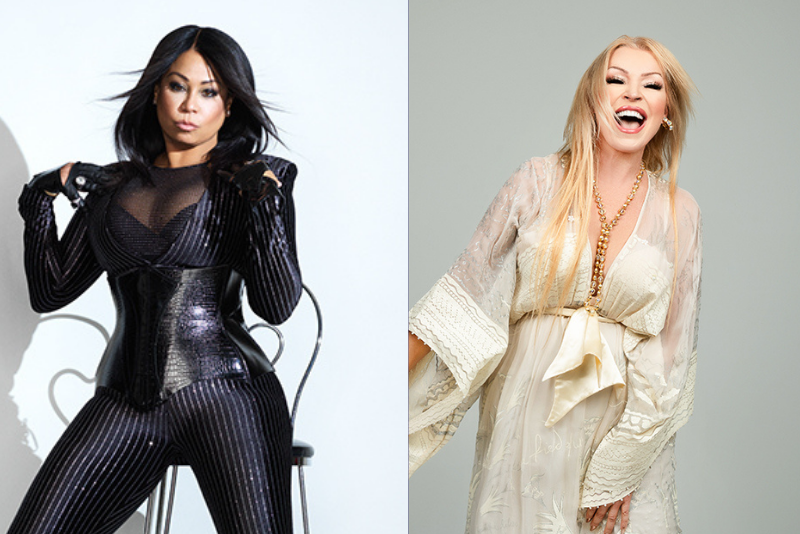
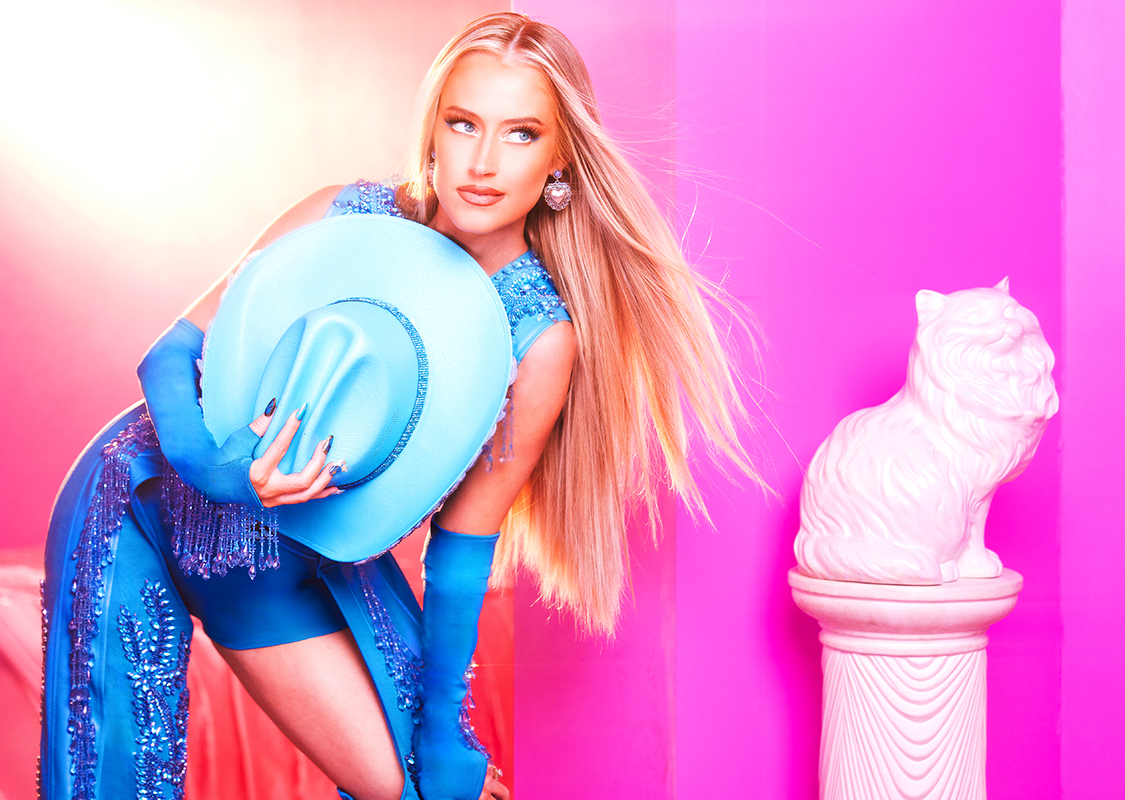
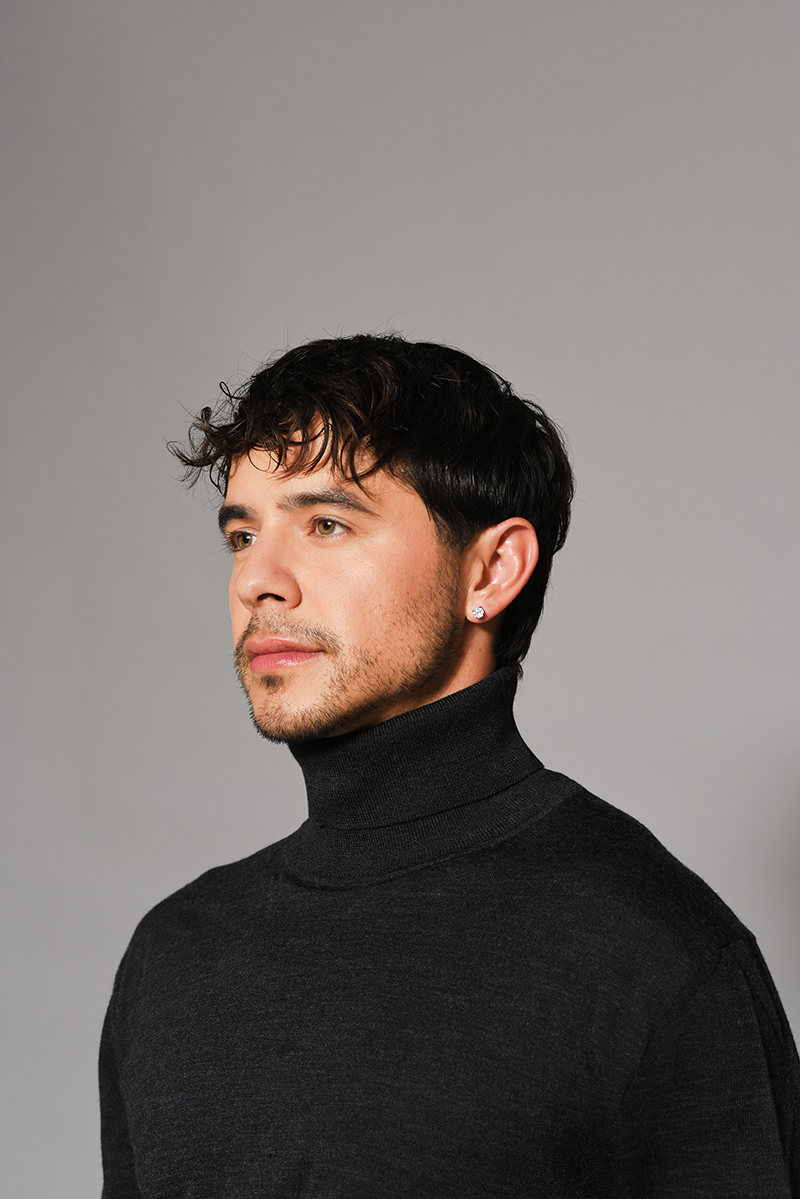

















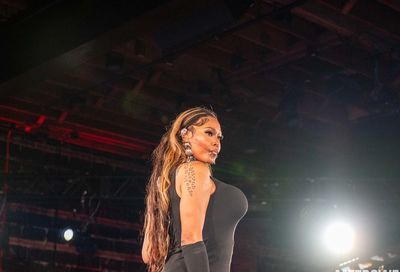
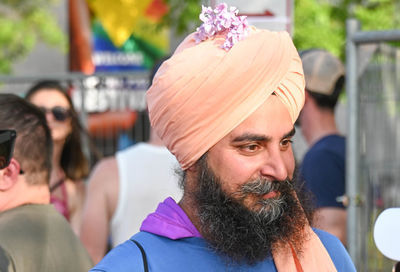
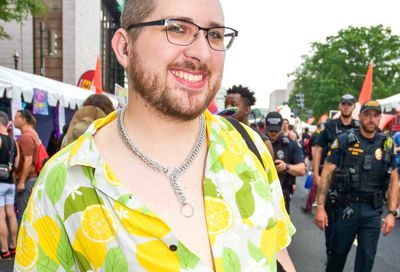
You must be logged in to post a comment.